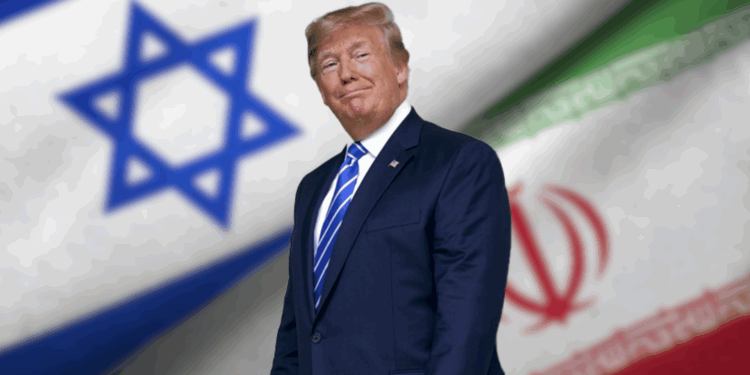- Trump intervened to halt an Israeli airstrike mid-flight, helping salvage a fragile ceasefire with Iran after early violations on both sides.
- The limited Israeli strike still went ahead, hitting an Iranian radar site; Iran’s response was reportedly symbolic and carefully coordinated.
- Despite criticism from Democrats over bypassing Congress, Trump’s allies praised his strategy and doubled down on his Nobel Peace Prize nomination.
The shaky ceasefire between Israel and Iran appeared to stabilize late Tuesday after a dramatic day of back-and-forth missile fire, blame trading, and a rare public rebuke from President Donald Trump against America’s closest Middle East ally. Amid mounting tensions, Trump personally intervened, urging Israeli Prime Minister Benjamin Netanyahu to scale back a planned airstrike. “Bring your pilots home, NOW,” Trump posted on Truth Social in an unprecedented admonition.
The former president, visibly frustrated, lashed out at both Israel and Iran, but focused his ire on Israel’s bombing campaign that reportedly continued even after the ceasefire had been announced. After a phone call with Netanyahu, Trump announced Israeli planes had been recalled mid-mission. However, explosions were soon reported in Tehran, indicating at least a partial strike had gone through—later confirmed to be limited to one radar installation after Trump’s intervention.
Ceasefire Holds—But Just Barely
Despite both sides accusing the other of initial violations—Israel claimed to have intercepted Iranian missiles, while Iran denied launching them—the ceasefire mostly held into the evening. Iranian media claimed their response had been symbolic and “imposed on the enemy,” while Israeli officials scaled down their strikes to a single target to avoid full-scale escalation. Even as Israel celebrated its actions and declared victory, voices within its government called for continued aggression. Yet, the all-clear was eventually sounded in northern Israel.
In the backdrop, Trump allies, including Rep. Buddy Carter, doubled down on their nomination of Trump for the Nobel Peace Prize. Meanwhile, Vice President JD Vance hailed Trump’s foreign policy doctrine as “clear, aggressive, and effective.” Within Iran, however, reports of civilian casualties—including the assassination of a nuclear scientist and his son—stoked outrage, even as Tehran’s leadership hinted at ending hostilities for now.
U.S. and Global Reaction Split
Domestically, the Biden-led opposition criticized Trump’s decision to launch strikes without Congressional approval, with Senate Majority Leader Chuck Schumer calling the postponed military briefings “derelict.” Republicans defended Trump’s constitutional authority and painted the strikes as a resounding success. Internationally, questions loomed over the actual damage inflicted on Iran’s nuclear infrastructure—particularly the Fordow facility—while UN inspectors cautioned that no independent verification had been possible yet.
Ultimately, while Trump declared the nuclear sites “totally destroyed,” analysts believe the ceasefire may have been aimed more at negotiating leverage than military annihilation. Talks are expected to resume soon, with Trump’s envoy Steve Witkoff slated to lead discussions.














